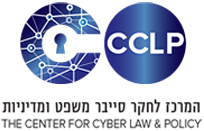 University of Zurich
University of Zurich
Natalie Pompe is a PhD Candidate at the University of Zurich and holds a Master of Law from the University of Zurich and an LL.M. from King's College London. In July 2018 she joined HIIG as a Fellow in the research field ‘Data, actors, infrastructures: The Governance of data-driven innovation and cyber security.’ Her PhD thesis investigates the concept of algorithmic information distribution and its effect on democratic will-building processes. She answers the question whether the current algorithmic information distribution in the digital public sphere is still in accordance with the constitutional framework of the Swiss Democracy. She has a strong interest in new technologies shaping our society and the protection of human agency as it is a driver for innovation and societal progress. Her research finds real-world application in the project ‚We.Publish' that creates a media-cryptocurrency in Switzerland and a blockchain-based technology for journalists with the aim to preserve and enhance the quality of journalism. Apart from her research, she is a Yoga and Meditation teacher.
Abstract:
Abstract for ‘AI: Ethical and Legal Implications’ Conference on the 28-30th of
Artificial intelligence affects the global community as a whole, which calls for a global discourse on the basis of fundamental democratic values. However, the traditional regulatory responses linked to the concept of jurisdictions create a fragmentation in legal norms. In other words, various regulatory actors respond to the same technical processes individually resulting in a fragmented use of AI technologies across jurisdictions. This article discusses the dynamics between technological development and its interaction with both legal norms and social values. Within this article I explore how the fragmentation in the legal regulation affects not only the technical development but also the regulatory processes themselves. Furthermore, the responsible regulators are not only subject to different regulatory regimes and concepts of democracy, but also other social norms apply in different jurisdictions. Fragmented application of AI technologies affects experiences with technologies that on one hand can act like a social glue for society, on the other hand they create the informational basis for democratic discourse about their regulation.
An example of this dynamic between legal fragmentation and application of technology is the development of China as a leader in facial recognition. The combination of the Chinese population size and unregulated use of personal photos has allowed Chinese companies to successfully commercialize facial recognition algorithms. While Chinese citizens are getting used to facial recognition in various countries, the introduction of this technology in other countries created societal resistance.
My hypothesis in this article is that there is a circular dynamic between regulatory response and experience with new innovation. As explained, the lack of legal harmonization on AI issues will create a different experience with AI technology across the world. How society perceives and experiences new technologies influences the debates on arising regulatory challenges: such experience shape our values, information exchange and debates shape our realities. In other words, common experiences create a shared understanding for an issue that needs a regulatory response.
A likely conclusion of the analysis of legal fragmentation would be that the legal responses should be more interoperable. However, a closer look at the obstacles of harmonisation attempts show how closely connected social and legal norms are. New innovations usually come with high hopes to solve various problems of mankind. Whilst technical advancements and economic trade has been globalised, social norms are still very fragmented. Deliberative democratic discourse develops in the interplay between institutionalised will-formation and political opinion-formation along informal channels. The latter is strongly affected by the experience with new technologies and the information provided about them. Consequently, I conclude that in order to path a way towards an inclusive and deliberative Global Governance, we need to analyse the informational basis and the access or experience with technologies. As a method in this article I am applying the concept of interoperability developed by Urs Gasser and John Palfrey that distinguishes between a legal layer, data layer, technical and social layers of interoperability.





